7 Healthy Nuts That Are Just Okay and 5 Hidden Picks with Bigger Benefits

Explore the world of nuts, a delicious and nutritious snack option that varies in health benefits. While some nuts are considered healthy but just okay, others offer hidden advantages that can significantly enhance your diet. This guide highlights seven popular nuts and five lesser-known picks that pack bigger benefits.
1. Cashews
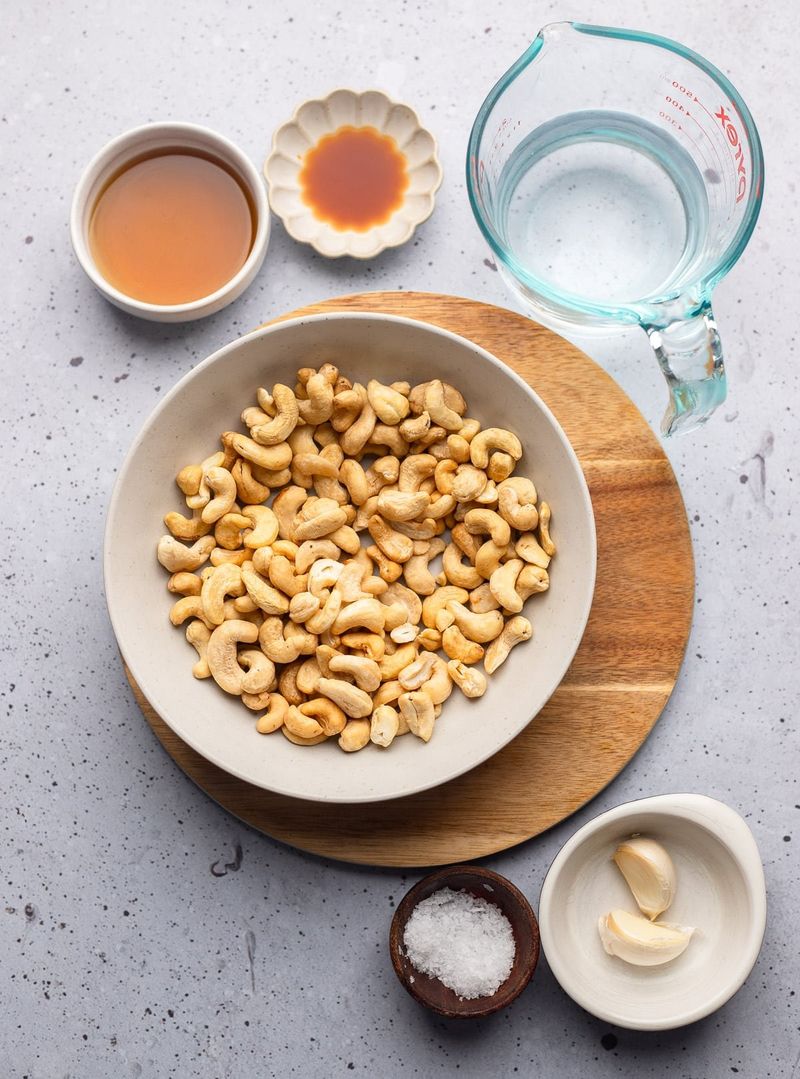
Cashews, creamy and popular, often make their way into various dishes and snacks. However, they fall short in dietary fiber and have a higher carbohydrate content compared to other nuts. Perfect for creating rich sauces, their ability to satiate hunger is questionable. Many enjoy their soft texture, yet it’s this very quality that can lead to overindulgence without realizing. In moderation, cashews can be a delightful treat, but they may not be the best choice for those seeking nutty satiety. Their unique taste does lend a luxurious touch to both savory and sweet recipes alike.
2. Peanuts
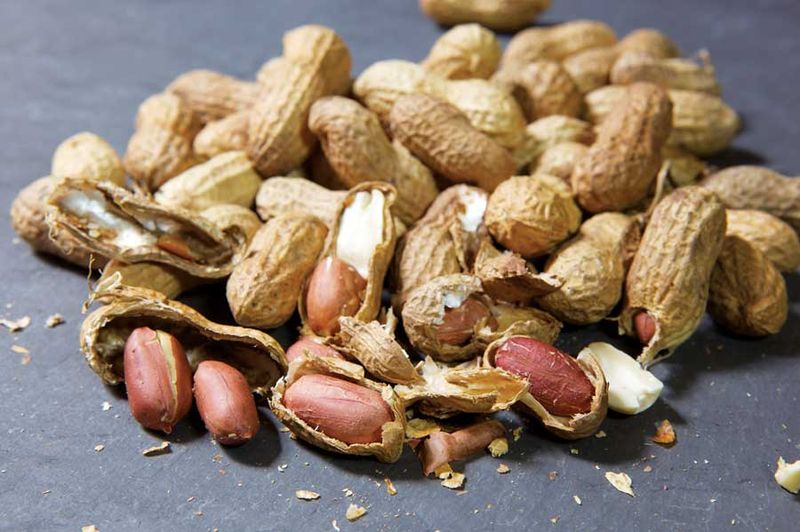
Peanuts, though technically legumes, are a staple snack worldwide. They’re commonly roasted in oil and dusted with salt, which may detract from their nutritional appeal. While they’re accessible and affordable, peanuts don’t quite match the nutrient profile of other nut varieties. Their presence is ubiquitous in everything from butter to confectionaries, making them a beloved choice despite their limitations. For those allergic to tree nuts, peanuts offer an alternative, yet it’s essential to consume them mindfully. Their versatility in cooking can’t be denied, but health-wise, they rank just okay.
3. Pistachios
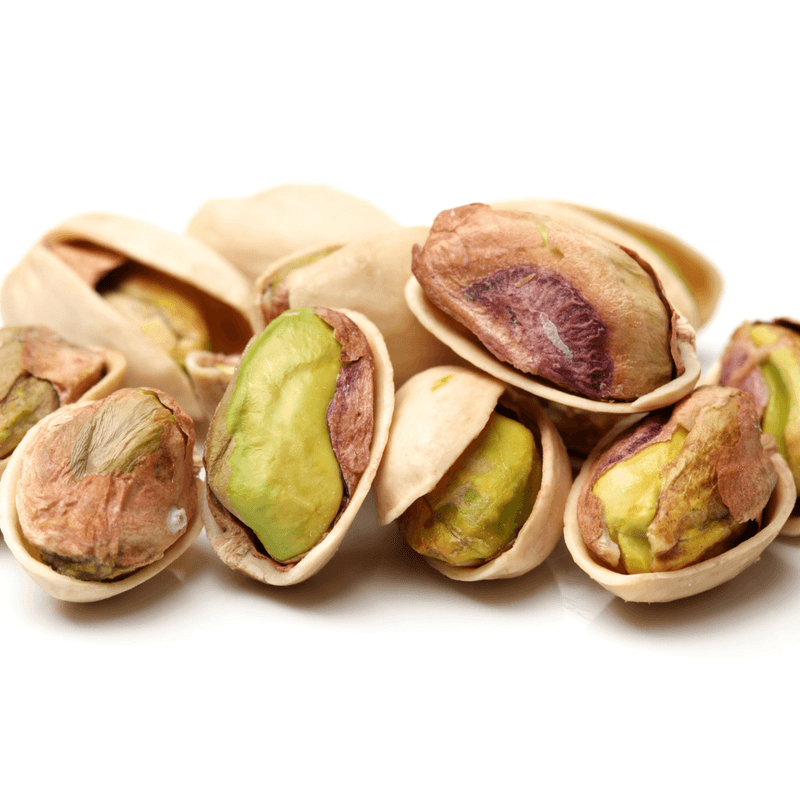
Pistachios captivate with their vibrant color and pleasant texture. Despite their appeal, they’re lower in fat compared to many nuts, which can lead to unintentional overconsumption, especially with pre-shelled options. Their taste makes them a popular choice for snacking, yet they don’t provide the same filling effect as their higher-fat counterparts. These emerald-hued nuts bring a splash of color to dishes and are often used in desserts. While delicious, their nutritional profile places them in the category of healthy but not the most satiating nut options available.
4. Brazil Nuts
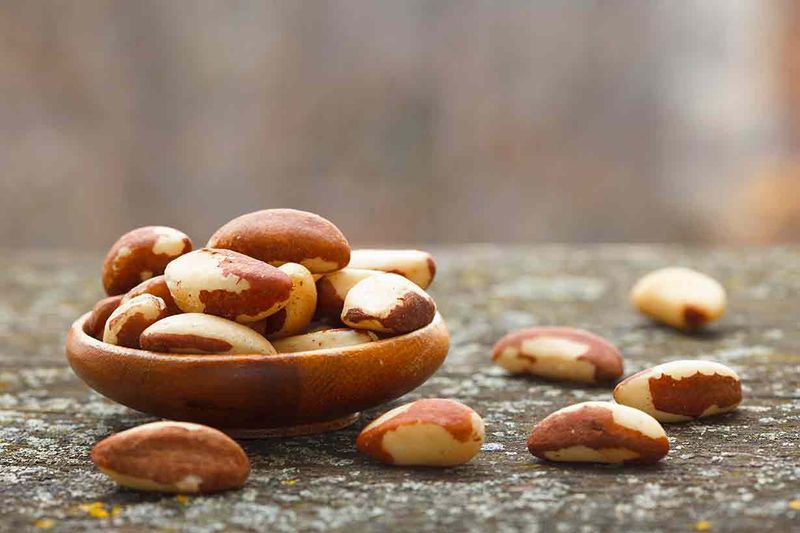
Brazil nuts are power-packed with selenium, a vital mineral, though caution is advised due to their high concentration. Consuming one or two Brazil nuts can more than fulfill daily selenium requirements, but overindulgence risks excessive intake. Often enjoyed for their rich, creamy texture, Brazil nuts make a luxurious addition to nut mixes. Their large size and distinctive taste set them apart, making them a favored choice in gourmet recipes. Despite their benefits, careful portion control is crucial. These nuts stand out for their remarkable selenium content, offering health perks if consumed wisely.
5. Pine Nuts
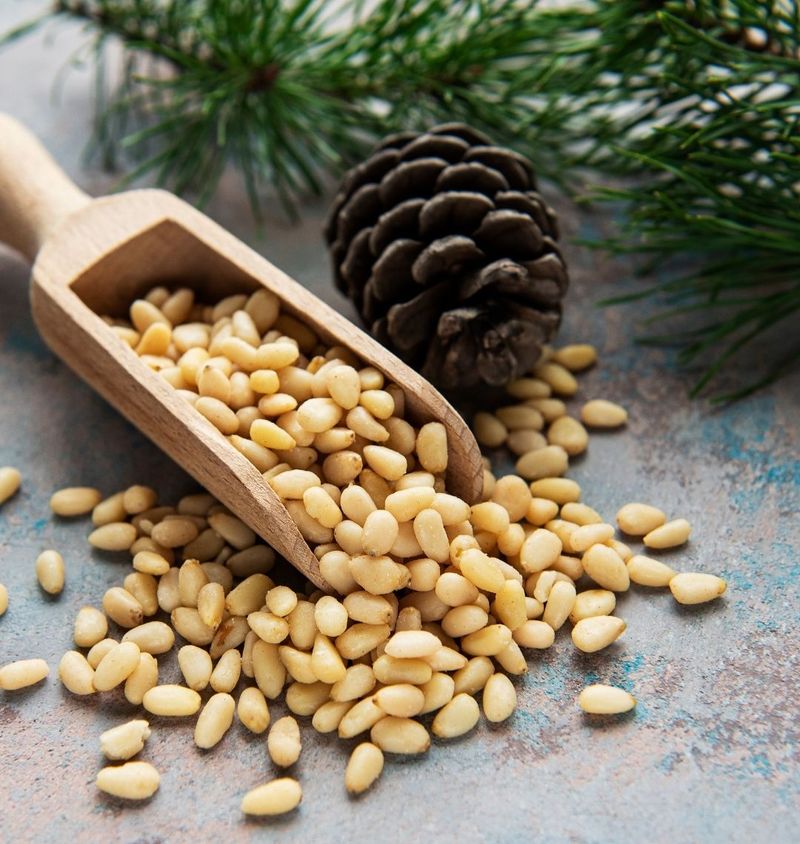
Pine nuts, often associated with savory pesto, are prized for their delicate flavor. Their inclusion elevates dishes, yet they lack the fiber and protein offered by more robust nuts. Known for their high price, pine nuts add a touch of elegance to culinary creations. Their buttery texture can enhance salads and pasta, although they might not be the go-to option for substantial nutritional benefits. While pine nuts bring a unique taste, their nutritional profile doesn’t quite match their cost. They’re best enjoyed sparingly as a flavor enhancer rather than a primary source of nutrients.
6. Chestnuts

Chestnuts are celebrated especially during festive seasons, offering a different nut experience. Low in fat and calories, they contrast sharply with typical heart-healthy nuts known for rich fats. This lighter option lacks staying power, providing less satiety despite their sweet taste. Historically, chestnuts served as a staple food in mountainous regions, prized for their carbohydrate content. Their versatility in cooking from soups to desserts makes them a seasonal favorite. While they bring nostalgia and warmth, those seeking lasting fullness might consider heartier nut options instead of relying on chestnuts alone.
7. Macadamia Nuts
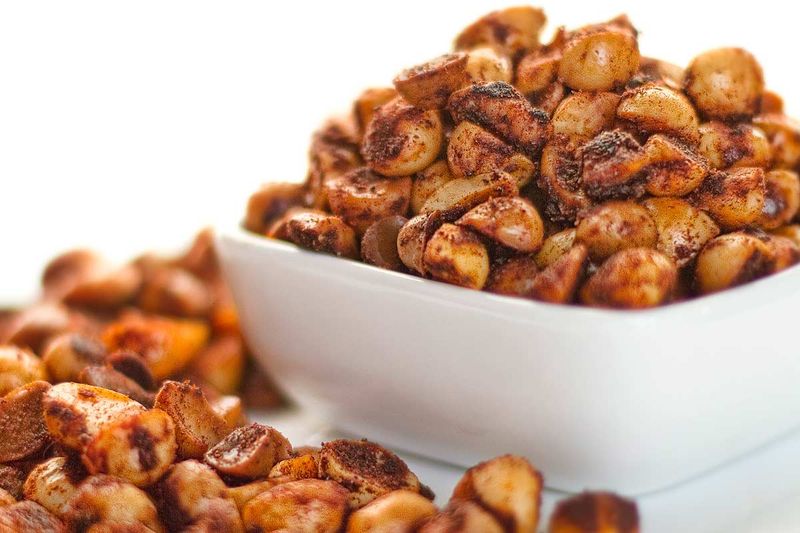
Macadamia nuts, known for their rich, buttery flavor, are often associated with indulgence. They’re significantly high in fat, offering a unique taste experience, yet they lack protein. Commonly found in cookies and confections, they add a touch of luxury to sweet treats. Their creamy texture is pleasing, but for those looking to curb hunger, macadamia nuts may not be the ideal option. Originating from Australia, these nuts bring a taste of the exotic, though their high calorie content warrants moderation. Despite their delightful flavor, they’re more of a treat than a dietary staple.
8. Walnuts

Walnuts are a standout for heart and brain health, rich in omega-3 fatty acids and antioxidants. Their unique wrinkled appearance belies a powerhouse of nutrients. Known for their anti-inflammatory properties, walnuts are a top choice for those seeking comprehensive health benefits. They’re versatile in both sweet and savory dishes, from baked goods to salads. Walnuts have a storied history in traditional medicine, valued for their health-enhancing properties. Adding them to your diet could support cognitive functions and cardiovascular health. Their earthy taste pairs well with a variety of flavors, making them a must-have.
9. Almonds

Almonds, whether raw or dry-roasted, are celebrated for their nutritional density. High in fiber, vitamin E, and protein, they are excellent for balancing blood sugar and promoting fullness. Their crunchy texture makes them a favorite snack worldwide, while their subtle flavor complements both sweet and savory dishes. From almond milk to flour, their versatility is unmatched in the nut world. Historically, almonds have been a symbol of prosperity, often given as gifts. Their ability to satisfy hunger makes them a perfect choice for those seeking a healthy, long-lasting snack option.
10. Pecans
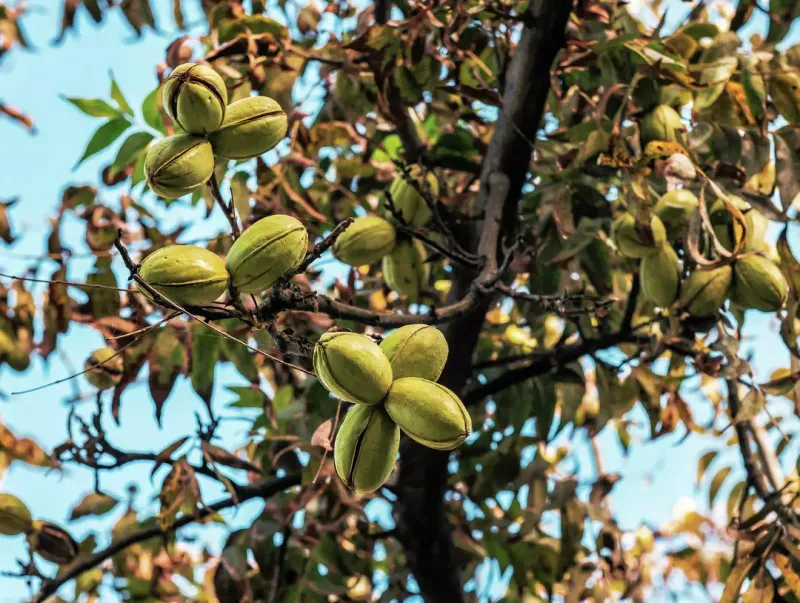
Pecans, native to North America, are often underrated compared to other nuts. Rich in antioxidants and healthy fats, they offer notable anti-inflammatory benefits. Their sweet, buttery taste pairs beautifully with a variety of dishes, from salads to desserts. Pecans have a storied place in Southern cuisine, especially in pecan pie. Their unique flavor profile makes them an appealing option for those looking to enhance their meals with nutritious ingredients. Despite their sweetness, pecans are a wholesome choice, providing numerous health benefits when enjoyed in moderation, free from added sugars.
11. Hazelnuts
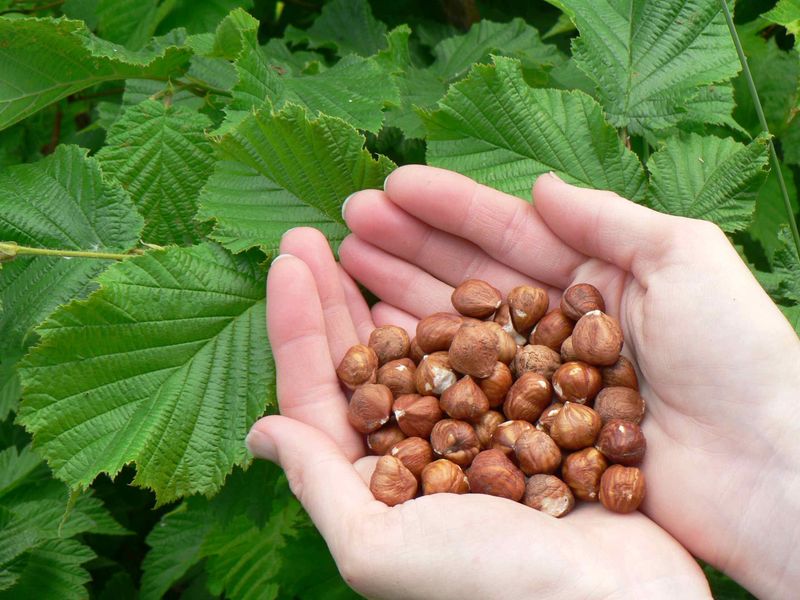
Hazelnuts, synonymous with gourmet chocolate spreads, are a vitamin E powerhouse. Their rich, nutty flavor enhances both confections and savory dishes. Originating from Europe, hazelnuts have been cultivated for centuries, celebrated for their nutritional benefits. They’re a great source of healthy fats and fiber, supporting skin health and overall wellness. These nuts offer a sophisticated touch to any dish, making them a popular choice among chefs. While often associated with indulgence, hazelnuts provide substantial health benefits, proving they’re more than just a sweet treat component.
12. Tiger Nuts
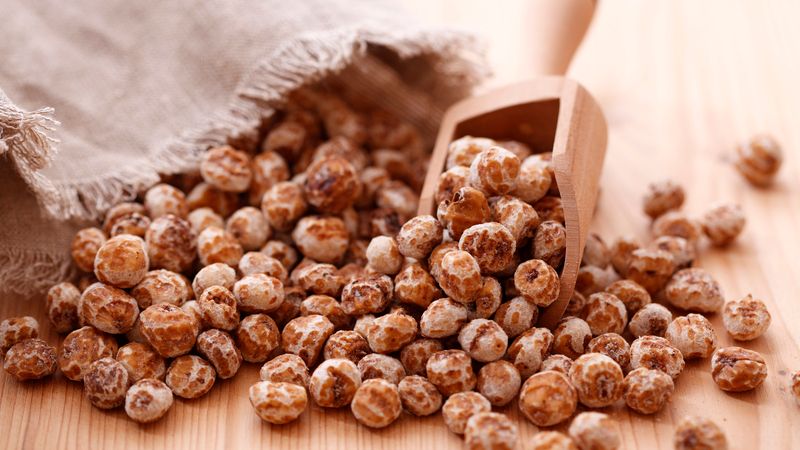
Tiger nuts, though misleadingly named, are actually tubers celebrated for their health benefits. High in prebiotic fiber, they support gut health and offer a naturally sweet flavor. Unlike traditional nuts, tiger nuts are allergy-friendly, making them accessible to a broader audience. Their ancient origins trace back to Egypt, where they were valued for their nutritional properties. Often used in dairy-free milk alternatives, tiger nuts provide a unique texture and taste experience. Their versatility extends to snacks and baking, positioning them as a hidden gem in the world of healthy eating.
